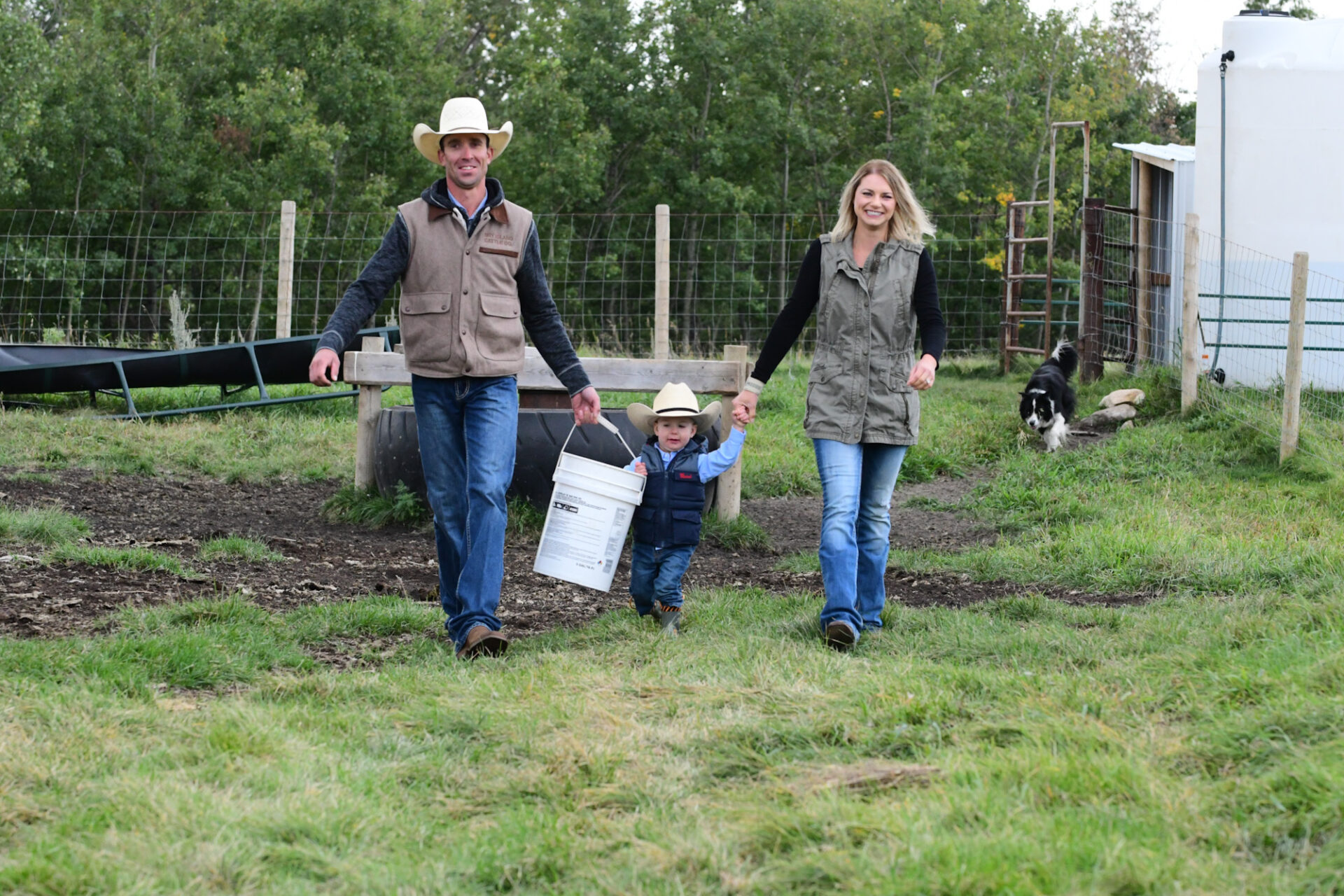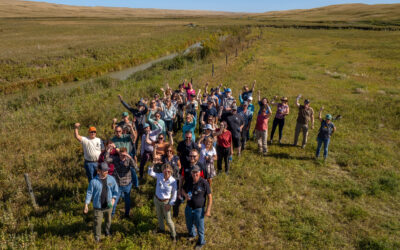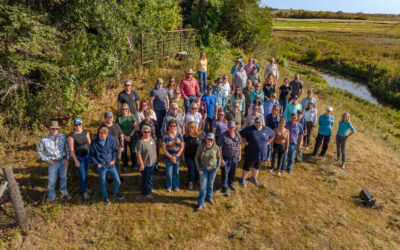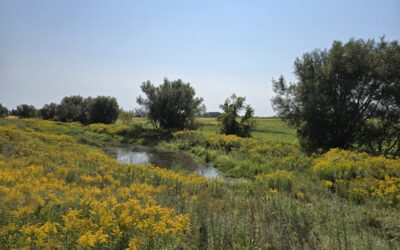Josh and Shaelyn Moyer’s beef farm in Elnora, Alberta, uses an alternative watering system (AWS) and rotational grazing to promote sustainable agriculture and environmental protection.

Josh and Shaelyn Moyer’s beef farm in Elnora, Red Deer County, Alberta. (picture by Myrna Pearman)
On his beef farm in Elnora, Alberta, Josh Moyer is working to create a better future—not just for him and his young family, but also for the local ecosystem and community.
The Moyers’ operation, Dry Island Cattle Company, has been involved with ALUS Red Deer County since 2018. So far, over 19 acres on their farm are enrolled in ALUS environmental projects, including an alternative watering system (AWS) and cross-fencing for rotational grazing
“Our Farmer Liaison [with ALUS] was a huge help in getting us started,” says Josh.
Using two approaches to promote sustainable agriculture and protect natural resources
An alternative watering system gives livestock a substitute to drinking directly from a natural body of water. The Moyers made use of well on their land as the source for their AWS. The system benefits the Moyers and the environment by protecting wetlands on their property. When the livestock don’t have to access the natural water source, it prevents them from getting hoof rot or stuck in muck. As well, the water the cows drink is fresh from the well and not full of runoff, bacteria and other naturally occurring material that collects in the wetland.
And by limiting livestock access to the wetland and surrounding vegetative area, the water quality and habitat are more robust. This is especially welcome to Elk that make use of the Moyers’ wetland.
Meanwhile, their rotational grazing system offers many benefits, such as keeping grass and soil healthy and reducing the need for additional fertilizer. When it comes to environmental benefits, research from the University of Alberta indicates that benefits of adaptive multi-paddock grazing approaches include improved drought, flood and climate resilience, increased vegetation growth and improved water quality.
“It’s come along way! I bet our grazing days are up 30–35 per cent,” Josh says of their rotational grazing practice and projects with ALUS. “We’d like to do more.”
Feeling the benefits of sustainable farming on the business
Together, these two approaches improve the quality of the soil while helping Josh win the war on weeds and provide his cows with fresh drinking water. They also have wider benefits for the local community, including cleaner air, cleaner water and greater biodiversity.
By introducing these sustainable agriculture practices, Josh is also helping his herd stay healthier and increasing the length of the grazing season on his farm.
After purchasing the land just five years ago—it had been in the previous owners’ family for over 100 years—Josh and his family are feeling the benefits for their animals and their business, now and for the future.
All photos by Myrna Pearman.



